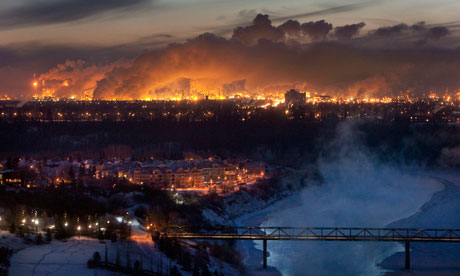Presentation at the Historical Materialism Conference
London
November 10, 2012
For the first time in history, humanity has to conceive our emancipation under a global ecological constraint, unsurpassable by an increase in labor productivity.
Global warming exemplifies this constraint. In order to stabilize the climate system, the final energy consumption should fall by 50% in the European Union, and 75% in the US, by 2050 (UN, World Economic and Social Outlook 2011). Such objectives cannot be achieved without a reduction in material production and transportation, at least in the so-called “developed” countries. It’s not enough to limit growth.
At the most, the energy system based on fossil fuels must be replaced by another one, renewable, completely new and different. A huge mutation must be carried out within two generations. It requires investments and thus additional energy consumption. In other words, the transition itself, at least in the beginning, will be an additional source of emissions and these must absolutely be compensated. Therefore, a plan is necessary, based on energy efficiency, not cost-efficiency.
For the first time in history, humanity has to conceive our emancipation under a global ecological constraint, unsurpassable by an increase in labor productivity.
Global warming exemplifies this constraint. In order to stabilize the climate system, the final energy consumption should fall by 50% in the European Union, and 75% in the US, by 2050 (UN, World Economic and Social Outlook 2011). Such objectives cannot be achieved without a reduction in material production and transportation, at least in the so-called “developed” countries. It’s not enough to limit growth.
At the most, the energy system based on fossil fuels must be replaced by another one, renewable, completely new and different. A huge mutation must be carried out within two generations. It requires investments and thus additional energy consumption. In other words, the transition itself, at least in the beginning, will be an additional source of emissions and these must absolutely be compensated. Therefore, a plan is necessary, based on energy efficiency, not cost-efficiency.










